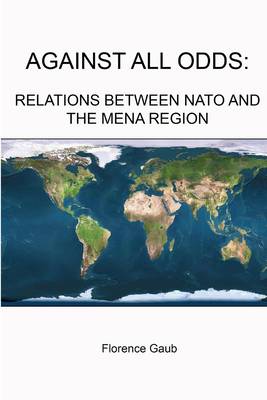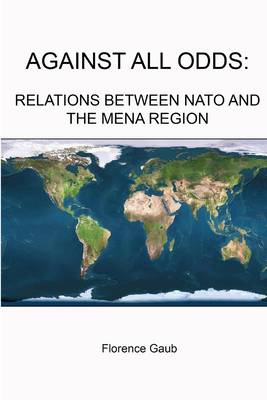
- Afhalen na 1 uur in een winkel met voorraad
- Gratis thuislevering in België vanaf € 30
- Ruim aanbod met 7 miljoen producten
- Afhalen na 1 uur in een winkel met voorraad
- Gratis thuislevering in België vanaf € 30
- Ruim aanbod met 7 miljoen producten
Zoeken
Against All Odds
Relations Between NATO and the Mena Region
Strategic Studies Institute, Florence Gaub
Paperback | Engels
€ 17,95
+ 35 punten
Omschrijving
The Middle East and North Africa might not be the first region that comes to mind when one contemplates the North Atlantic Treaty Organization (NATO). To many, the Alliance was founded largely to unite Europe and North America, and to counter threats emerging from the Soviet bloc. The end of the Cold War changed these assumptions-not least to be proven by NATO's Operation in Libya in 2011, sanctioned by the League of Arab States. In this monograph, Dr. Florence Gaub describes how the region has moved from the rim of the Alliance's security perspective toward a more nuanced vision that recognizes the region's role in an ever-changing and more-complex world. NATO has understood the security implications emerging from the changes taking place among its southern neighbors and the need for dialogue and cooperation. Dr. Gaub gives not only an overview of the different frameworks of cooperation that NATO has with the Middle East and North Africa, but also explains their evolution and potential.
Specificaties
Betrokkenen
- Auteur(s):
- Uitgeverij:
Inhoud
- Aantal bladzijden:
- 50
- Taal:
- Engels
Eigenschappen
- Productcode (EAN):
- 9781304052551
- Verschijningsdatum:
- 20/05/2013
- Uitvoering:
- Paperback
- Formaat:
- Trade paperback (VS)
- Afmetingen:
- 152 mm x 229 mm
- Gewicht:
- 86 g

Alleen bij Standaard Boekhandel
+ 35 punten op je klantenkaart van Standaard Boekhandel
Beoordelingen
We publiceren alleen reviews die voldoen aan de voorwaarden voor reviews. Bekijk onze voorwaarden voor reviews.











